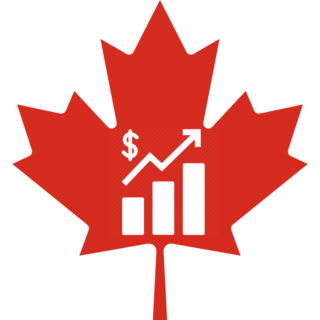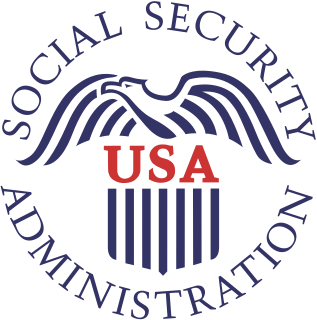Public welfare in Puerto Rico is a system of nutrition assistance, public health, education, and subsidized public housing, among others, provided to the impoverished population of the island.
The following programs are provided by the U.S. Federal government in Puerto Rico:

The United States Department of Agriculture (USDA), also known as the Agriculture Department, is the federal executive department responsible for developing and executing federal laws related to farming, forestry, rural economic development, and food. It aims to meet the needs of commercial farming and livestock food production, promotes agricultural trade and production, works to assure food safety, protects natural resources, fosters rural communities and works to end hunger in the United States and internationally.
Supplemental Security Income (SSI) is a means-tested program that provides cash payments to disabled children, disabled adults, and individuals aged 65 or older who are citizens or nationals of the United States. SSI was created by the Social Security Amendments of 1972 and is incorporated in Title 16 of the Social Security Act. The program began operations in 1974.

Welfare is a type of government support intended to ensure that members of a society can meet basic human needs such as food and shelter. Social security may either be synonymous with welfare, or refer specifically to social insurance programs, which provide support only to those who have previously contributed, as opposed to social assistance programs, which provide support on the basis of need alone. The International Labour Organization defines social security as covering support for those in old age, support for the maintenance of children, medical treatment, parental and sick leave, unemployment and disability benefits, and support for sufferers of occupational injury.
The Fair Deal was an ambitious set of proposals put forward by U.S. President Harry S. Truman to Congress in his January 1949 State of the Union address. More generally the term characterizes the entire domestic agenda of the Truman administration, from 1945 to 1953. It offered new proposals to continue New Deal liberalism, but with the Conservative Coalition controlling Congress, only a few of its major initiatives became law and then only if they had considerable GOP support. As Richard Neustadt concludes, the most important proposals were aid to education, universal health insurance, the Fair Employment Practices Commission, and repeal of the Taft–Hartley Act. They were all debated at length, then voted down. Nevertheless, enough smaller and less controversial items passed that liberals could claim some success.

In the United States, the Supplemental Nutrition Assistance Program (SNAP), formerly known as the Food Stamp Program, is a federal program that provides food-purchasing assistance for low- and no-income people. It is a federal aid program, administered by the United States Department of Agriculture under the Food and Nutrition Service (FNS), though benefits are distributed by specific departments of U.S. states.

Electronic benefit transfer (EBT) is an electronic system that allows state welfare departments to issue benefits via a magnetically encoded payment card used in the United States. It reached nationwide operations in 2004. The average monthly EBT payout is $125 per participant.

The Food and Nutrition Service (FNS) is an agency of the United States Department of Agriculture (USDA). The FNS is the federal agency responsible for administering the nation’s domestic nutrition assistance programs. The service helps to address the issue of hunger in the United States.

Public housing in Puerto Rico is a subsidized system of housing units, mostly consisting of housing projects, which are provided for low-income families in Puerto Rico. The system is mainly financed with programs from the US Department of Housing and Urban Development (HUD) and the US Department of Agriculture USDA Rural Development. As of 2020, there were 325 public housing developments in Puerto Rico.
In the United States, federal assistance, also known as federal aid, federal benefits, or federal funds, is defined as any federal program, project, service, or activity provided by the federal government that directly assists domestic governments, organizations, or individuals in the areas of education, health, public safety, public welfare, and public works, among others.
Nutrition Assistance for Puerto Rico (NAP) —Spanish: Programa de Asistencia Nutricional (PAN) commonly known in Puerto Rican Spanish as Cupones — is a federal assistance nutritional program provided by the United States Department of Agriculture (USDA) solely to Puerto Rico. It provides over $1.5 billion USD in supplemental economic resources to help just over 1 million impoverished residents cope with their nutritional needs. It is based on, though not directly part of, the USDA's national Supplemental Nutrition Assistance Program.
The Child and Adult Care Food Program (CACFP) is a type of United States federal assistance provided by the United States Department of Agriculture (USDA) to states in order to provide a daily subsidized food service for an estimated 3.3 million children and 120,000 elderly or mentally or physically impaired adults in non-residential, day-care settings. It is a branch within the Policy and Program Development Division of the Child nutrition programs, along with the School Programs Branch, which runs the National School Lunch Program. The program is commonly referred to as the Child Care, Child Care Food, Adult Care, or Adult Care Food Program, and is often operating in conjunction with other child and adult day-care programs, such as the Head Start. Its federal identification number, or CFDA number, is 10.558. Section 17 of the National School Lunch Act, and USDA issues the program regulations under 7 CFR part 226.
The Puerto Rico Health Reform —Spanish: Reforma de Salud de Puerto Rico, refers to the Medicaid health plan which is a "subset of the larger public government healthcare delivery system" of Puerto Rico. It was once called "La Reforma", later it was called "Mi Salud" and now called Vital but they are all Medicaid, a government-run program which provides medical and healthcare services to indigent and impoverished citizens of Puerto Rico. It was locally referred to simply as La Reforma — for many years. Puerto Rico's Medicaid program is, similar to other Medicaid programs of states of the United States. The funding is by the U.S. Medicaid program in the form of a block grant, unlike how states of the United States Medicaid programs are funded and in 2019 much of the funding was slashed.

Social programs in Canada include all Canadian government programs designed to give assistance to citizens outside of what the market provides. The Canadian [[social safety s a broad spectrum of programs, many of which are run by the provinces. Canada also has a wide range of government transfer payments to individuals, which totaled $176.6 billion in 2009—this cost only includes social programs that administer funds to individuals; programs such as medicare and public education are additional costs.

The Food, Conservation, and Energy Act of 2008 was a $288 billion, five-year agricultural policy bill that was passed into law by the United States Congress on June 18, 2008. The bill was a continuation of the 2002 Farm Bill. It continues the United States' long history of agricultural subsidies as well as pursuing areas such as energy, conservation, nutrition, and rural development. Some specific initiatives in the bill include increases in Food Stamp benefits, increased support for the production of cellulosic ethanol, and money for the research of pests, diseases and other agricultural problems.
Social security is divided by the Indian government into seven branches: healthcare; old age/retirement; family and childcare; accident assurance; and occupational disease; rural job guarantee; and food security. The Central Government of India's social security and welfare expenditures are a substantial portion of the official budget, and state and local governments play roles in developing and implementing social security policies. Additional welfare measure systems are also uniquely operated by various state governments. The government uses the unique identity number (Aadhar) that every Indian possesses to distribute welfare measures in India. The The Code On Social Security, 2020 is part of the Indian labor code that deals employees' social security and have generous provisions on retirement pension, healthcare insurance and medical benefits, sick pay and leaves, unemployment benefits and paid parental leaves. The largest social security programs backed by The Code On Social Security, 2020 are the Employees' Provident Fund Organisation for retirement pension and the Employees' State Insurance for healthcare and unemployment benefits.fine

Social programs in the United States are programs designed to ensure that the basic needs of the American population are met. Federal and state social programs include cash assistance, health insurance, food assistance, housing subsidies, energy and utilities subsidies, and education and childcare assistance. Similar benefits are sometimes provided by the private sector either through policy mandates or on a voluntary basis. Employer-sponsored health insurance is an example of this.
The Food Distribution Program on Indian Reservations (FDPIR) allows Indian Tribal Organizations (ITOs) to operate a food distribution program as an alternative to the Food Stamp Program for those living on or near an Indian reservation. The Food and Nutrition Service (FNS), an agency of the U.S. Department of Agriculture, administers FDPIR at the Federal level, and is locally operated through ITOs or State agencies(SAs). Eligibility for benefits is similar to the food stamp (SNAP) program, and funds are drawn from food stamp appropriations. Food Distribution Program Nutrition Education (FDPNR) grants are also awarded to participating FDPIR ITOs. These grants are awarded to support nutrition education activities that are culturally relevant, promoting healthy food choices, and promoting physical activity among participants.
Harvard Law defines poverty law as, "the legal statutes, regulations and cases that apply particularly to the financially poor in his or her day to day life". In a commonsense understanding and in practice, the goal of poverty law is to protect the disadvantaged poor from unfair treatment by the law. Poverty law often overlaps with federal benefits and welfare policies. Pertinent federal government benefits include Medicaid; cash public assistance ; and the Supplemental Nutrition Assistance Program (SNAP) program, previously known as the food stamps program. Poverty law frequently involves questions of administrative law, civil rights law, constitutional law, employment law, and health law.
Welfare in California consists of federal welfare programs—which are often at least partially administered by state and county agencies—and several independent programs, which are usually administered by the counties.
South Africa has one of the most extensive social welfare systems among developing countries in the world. In South Africa today, 12.4 million people receive some form of social grant provided by the government.